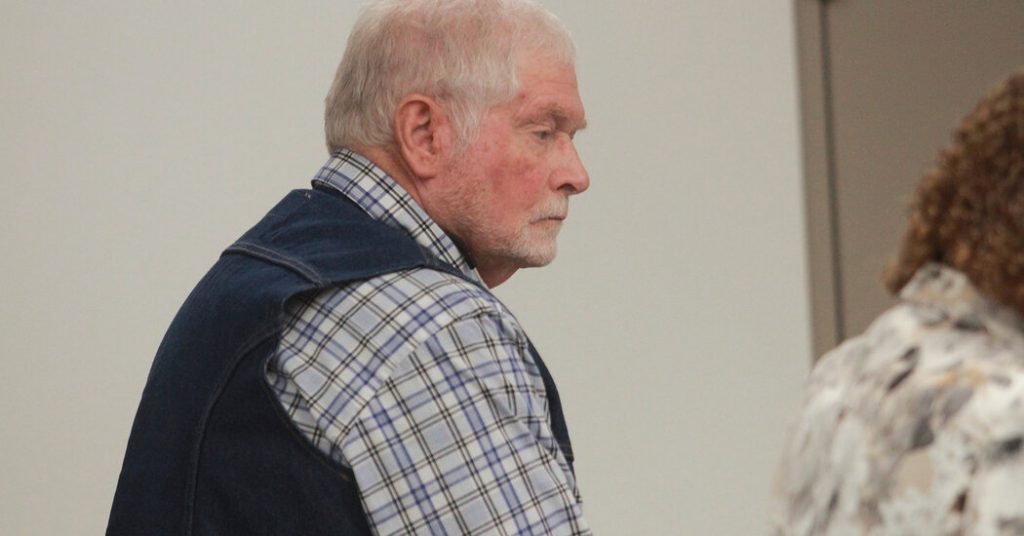A mistrial was declared in the case of an Arizona rancher who was accused of murdering an unarmed migrant on his property after he crossed the U.S.-Mexico border. The decision was made after jurors were unable to reach a unanimous verdict during deliberations. The judge scheduled a hearing for April 29. The incident occurred when the migrant, Gabriel Cuen-Buitimea, crossed into George Alan Kelly’s ranch, and Mr. Kelly fired his rifle at him, resulting in his death. Hardened immigration critics and conservative ranchers saw Mr. Kelly as the victim, while many in Santa Cruz County viewed the surge in migrants crossing the border as a humanitarian crisis.
George Alan Kelly, 75, pleaded not guilty to charges of second-degree murder and aggravated assault with a deadly weapon. He rejected a plea deal that would have reduced the charges to negligent homicide. During closing arguments, the prosecution claimed that Mr. Kelly shot at the migrant without warning, severing his aorta and breaking three ribs. The defense presented a different account, stating that Mr. Kelly saw a group of armed men crossing his property and fired a warning shot after feeling threatened. The defense also suggested the possibility of the migrant being involved in a gang conflict.
The prosecution argued that there was no evidence of rifles or armed men on Mr. Kelly’s property, contrary to the defense’s claims. The defense maintained that Mr. Kelly was in a life-or-death situation and acted in self-defense. The lawyer for Mr. Kelly stated that he had become increasingly concerned about migrant crossings on his property, leading him to arm himself for protection. The mistrial decision left the case unresolved, with a new hearing scheduled for April 29 to determine the next steps in the legal process.
The killing of Gabriel Cuen-Buitimea on George Alan Kelly’s ranch sparked controversy and inflamed tensions on both sides of the national debate over immigration. The case highlighted the complex issues surrounding border security, immigration, and the rights of property owners to defend their land. While some viewed Mr. Kelly as a victim defending his property, others saw the killing as a tragedy and a reflection of the challenges facing migrants seeking a better life in the United States. The mistrial left the case in limbo, with the legal proceedings set to continue in the coming weeks.
The jury’s inability to reach a verdict reflects the complexities of the case and the differing perspectives on the actions of George Alan Kelly. The prosecution emphasized the alleged recklessness of Mr. Kelly’s actions, while the defense argued that he acted out of fear for his safety. The mistrial decision allows for further examination of the evidence and arguments presented during the trial. The outcome of the case will have implications for how similar incidents are addressed in the future, impacting discussions on immigration, border security, and self-defense laws in Arizona and beyond. The legal proceedings will continue to unfold as the parties involved await further resolution in the case.
Overall, the mistrial in the case of George Alan Kelly reflects the complexities and challenges surrounding the incident involving the shooting of an unarmed migrant on his property. The divergent views on the case highlight the polarizing nature of debates surrounding immigration, border security, and property rights. With the legal proceedings set to continue in the coming weeks, the resolution of the case will have broader implications for similar cases in the future. The decision to declare a mistrial underscores the need for a thorough examination of the evidence and arguments presented, ensuring that justice is served and the truth is revealed in a case that has sparked intense scrutiny and debate.


